
|
The Mathematical Association of America Maryland-District of Columbia-Virginia Section |
- Home
- History
- Main History Page
- Section History Document
- List of Past Officers
- Charter Members
- African-American Participation
- Stories from Section Members
- Section NExT Fellows
- Obituaries
- Smith Award Recipients
- Christensen Award Recipients
- Meritorious Service Award Recipients
- Undergraduate Award Winners
- Meeting Archive
- Past Meetings
- Talk Archive
- Old Section NExT Programs
- Newsletter Archive
- Meeting Minutes Archive
- Miscellaneous Documents
- Meetings
- Minutes
- Fall 2024 Executive
- Fall 2024 Membership
- Spring 2024 Executive
- Spring 2024 Membership
- Fall 2023 Executive
- Fall 2023 Membership
- Spring 2023 Executive
- Spring 2023 Membership
- Fall 2022 Executive
- Fall 2022 Membership
- Spring 2022 Executive
- Spring 2022 Membership
- Fall 2021 Executive
- Fall 2021 Membership
- Spring 2021 Executive
- Spring 2021 Membership
- Fall 2020 Executive
- Fall 2020 Membership
- Fall 2019 Executive
- Fall 2019 Membership
- Spring 2019 Executive
- Spring 2019 Membership
- Fall 2018 Executive
- Fall 2018 Membership
- Spring 2018 Executive
- Spring 2018 Membership
- Fall 2017 Executive
- Fall 2017 Membership
- Spring 2017 Executive
- Spring 2017 Membership
- Minutes Archive
- Newsletters
- Section NExT
- Awards
- Students
- Links
- Search
Fall 2016 Meeting at Johns Hopkins University
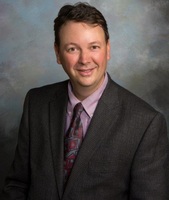
Keith MellingerUniversity of Mary WashingtonFriday workshop: Magma Workshop Abstract: The Magma computational algebra system is a software package designed for computations in algebra, number theory, algebraic geometry and algebraic combinatorics. It provides a mathematically rigorous environment for defining and working with structures such as groups, fields, algebras, graphs, codes and many others. In graduate school I used the system to aid my research, using the package to construct “small” examples that could be analyzed and, with any hope, generalized into families or in other ways that allowed me to write structural theorems. Later I learned to integrate Magma into my undergraduate research projects. In the workshop, we will use Magma to explore topics in abstract algebra and discrete mathematics just as we use similar tools in calculus and numerical analysis. Please bring your laptop or iPad to the workshop if you have one. Biographical Sketch: Keith E. Mellinger is Professor of Mathematics and Director of UMW's First-Year Seminar Program. He earned his graduate degrees in discrete mathematics from the University of Delaware. Mellinger is passionate about innovative teaching in the undergraduate curriculum, having recently branched out into the world of inquiry-based learning adapted to online teaching. He has been a supporter of undergraduate research since his days as a post-doc at the University of Illinois. Keith is also a musician, performing on guitar and mandolin regularly with a local bluegrass band. He lives in downtown Fredericksburg with his wife and three children. 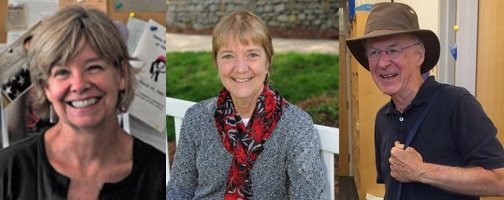
Caren Diefenderfer, Betty Mayfield, and Jon ScottBanquet Address:The MD-DC-VA Section: The First 100 Years Abstract: Founded in 1916, the Maryland-District of Columbia-Virginia Section was one of the earliest of the Mathematical Association of America. Thirty-eight people attended our first meeting on March 3, 1917 at Johns Hopkins University. As we return to the site of that first meeting, we celebrate the Centennial of our Section by remembering its history. Join us for a trip down Memory Lane as members of the Section History Committee describe what we have learned from the newsletters, meeting programs and abstracts, minutes and financial reports, annual reports, and correspondence collected by our officers over the years and stored in basements and garages all over the mid-Atlantic. Discover the famous people who have given talks at our meetings, and trends in topics of contributed papers. Track the participation of women, of HBCUs, of undergraduate students. From the Summer Workshops to Section NExT, our Section has a rich and fascinating history. Come learn about our past, present – and future! Biographical Sketch: Caren Diefenderfer (Hollins University), Betty Mayfield (Hood College), and Jon Scott (emeritus, Montgomery College) are all former Governors of the MD-DC-VA Section. Scott and Mayfield are recipients of the Section's Meritorious Service Award; Diefenderfer is a recipient of the Section's John M. Smith Award for outstanding teaching and will be presented with the MAA's Deborah and Franklin W. Haimo Award at the 2017 Joint Mathematics Meetings. All three have served on the Section History Committee and have given talks on the subject at two Joint Meetings. They have enjoyed learning about our Section's founding, meetings, summer workshops, activities, and most of all its people. 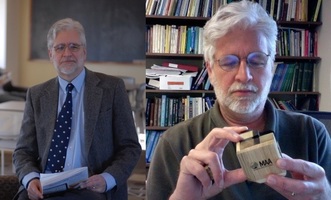
Paul ZornSt. Olaf CollegeSaturday Morning Address:Extreme Calculus Abstract: There is much more to differential and integral calculus than may first meet the eye, especially to those of us who teach it again and again. Well-worn calculus techniques and topics—polynomials, optimization, root-finding, methods of integration, rationality and irrationality, and more—often point to deeper, more general, more interesting, and sometimes surprising mathematical ideas and techniques. I'll illustrate my thesis with figures, examples, and calculation, and give references to MAA publications and resources that can support taking elementary calculus to its extremes. Biographical Sketch: Born and raised in India, Paul Zorn is a professor of mathematics at St. Olaf College. His professional interests include complex analysis, mathematical exposition, textbook writing, and the role of mathematics among the liberal arts. His 1986 paper “The Bieberbach Conjecture” was awarded the 1987 Carl B. Allendoerfer Award for mathematical exposition. He has co-authored several calclulus textbooks with his St. Olaf colleague, Arnold Ostebee. His most recent book is Understanding Real Analysis (AK Peters, 2010). From 1996 to 2000, he was editor of Mathematics Magazine, and also served a hitch (2011-12) as President of the Mathematical Association of America. 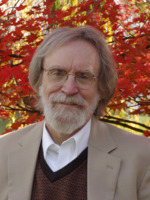
William DunhamResearch Associate in Mathematics, Bryn Mawr CollegeSaturday Afternoon Address:Euler in Two Acts Abstract: Leonhard Euler (1707 – 1783) is one of the towering figures from the history of mathematics. Here we look at two results that show how he acquired his lofty reputation. In 1737, Euler considered the infinite series 1/2 + 1/3 + 1/5 + 1/7 + 1/11 + … – i.e., the sum of reciprocals of the primes – and established that the sum “is infinite.” The proof rested upon his famous product-sum formula and required a host of analytic manipulations so typical of Euler's work. The other result addressed 1 + 1/4 + 1/9 + 1/16 … – i.e., the sum of reciprocals of the squares. Euler first evaluated this in 1734, and revisited it in 1741, but here we examine his 1755 argument that used l'Hospital's rule not once, not twice, but thrice! Euler has been described as “analysis incarnate.” These two theorems, it is hoped, will leave no doubt that such a characterization is apt. Biographical Sketch: William Dunham is a historian of mathematics who has written four books on the subject: Journey Through Genius, The Mathematical Universe, Euler: The Master of Us All, and The Calculus Gallery. He is featured in the Teaching Company's DVD course, “Great Thinkers, Great Theorems” and most recently was a co-editor of an anthology from Cambridge University Press titled The G. H. Hardy Reader. Dunham retired as the Truman Koehler Professor of Mathematics at Muhlenberg College (emeritus, 2014). Since then, he has held visiting positions at Harvard, Princeton, Cornell, and the University of Pennsylvania, and he now is a Research Associate in Mathematics at Bryn Mawr College. |
Copyright © 2016 - The Mathematical Association of America
Please send comments, suggestions, or corrections for this page to Brian Heinold at heinold@msmary.edu
Last Modified: 11/07/2016 - 09:36am
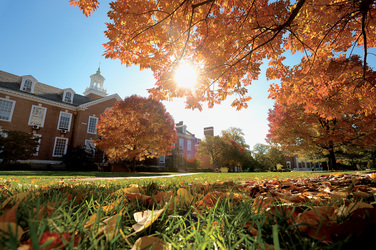 The Fall 2016 Meeting of the MD-DC-VA section of the MAA
was held at
The Fall 2016 Meeting of the MD-DC-VA section of the MAA
was held at